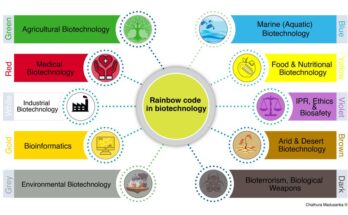By Akila Wijerathna Yapa,
Sri Lankan researcher, Upamali Peiris, at the Central Queensland University, Australia has shown her eagerness for new insights into sustainable controlling the costly problem of root-knot nematodes in vegetable crops following a treatment assessment trials. Her research interests are more towards organic agriculture, soil health and mostly working with horticultural crops. In her latest research she is looking at the possibility of using two nematode trapping fungi in granules to control root-knot nematode damage in vegetable crops and further assessing efficacy of organic inputs and alternate chemical and organic products in controlling disease.

Peiris has earned her Bachelor of Agriculture from the Wayamba University of Sri Lanka and Master of Science in Crop Science from the University of Peradeniya. She has joined the Central Queensland University, Australia with the fully funded research from the Australian government for commonwealth countries.
Her research focuses on sustainable management of root-knot nematodes in vegetable crops with a special focus on sweet potato and ginger which are of huge market value in Australia. Nematodes are one of the most significant pests of agricultural crops, particularly in the subtropical and tropical regions. Root-knot nematodes cause approximately 12% yield loss annually which is significant for the farmers. They may result about 57% yield losses in Australia untreated. The respective authorities have been taken actions to remove some effective nematicides from the market due to health and environment issues. Hence there is a timely need to find alternative control measures which are important in short term and long term use.
As short term solution she has been researching efficacy of Fluensulfone, Abamectin and Oxamyl in controlling nematicides using new products and products available for other crops. And also a product of Allicin and products with Bacillus sp. are also being researched with sweet potato.
Upamali expressing the importance of her research work says, “The results of these trial experiments will help to guide growers in their search for nematode protection, however more research will be required to provide understanding into the causes of such variability in product performances. The next stage of the research will investigate the causes of this variability, with further products and applications rates to be tested before best practice recommendations can be made to growers. Root-knot nematodes have a very wide host range like sweet potato, tomatoes and capsicum – heaps of plants are good hosts for them. Therefore, the study has the potential to have a big benefit not only for sweet potato and ginger but for the whole horticultural industry.”
Upamali Peiris has been working as a researcher and a lecturer at the Wayamba University of Sri Lanka.
About the Author-
Akila Wijerathna Yapa,
Graduate Research Scholar at the Hebrew University of Jerusalem




